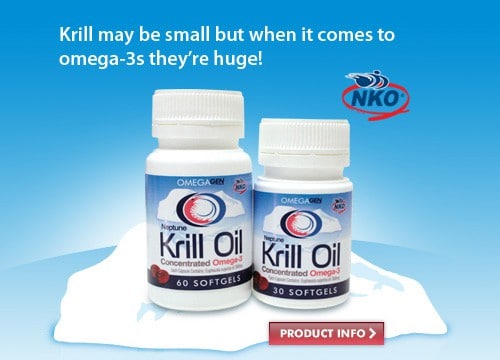Analyst Douglas Loe says the medical literature around omega-3 has grown increasingly crowded and the take away message from the Journal of the American Medical Association study on omega-3’s is more nuanced than what was picked up by the media last week. Last Tuesday, a study released by the Journal of the American Medical Association caused a bit of a stir in the world of alternative medicine.
The report, which analyzed clinical trials of more than 68,000 participants said that, when taken as a supplement or via diet, fish oil and its omega-3 fatty acids do not help prevent heart attacks, strokes, or death from heart disease.
Byron Capital analyst Douglas Loe, whose coverage includes Krill oil maker Neptune Technologies (TSX:NTB), says he has no major criticisms of the study. But, he points out, the medical literature around omega-3’s has grown increasingly crowded and the take away message from the study is more nuanced than what was picked up by the media last week. Loe says the JAMA study did not produce any new medical data, but rather was based on studies that were already published and available for review. The document, he says, did not attempt not to source all omega-3-focused papers for data, (Loe estimates there are more than 3635 of them) it focused on twenty larger, randomized studies. Loe points to numerous well controlled human studies that still supports his positive view of the medical benefits of Omega-3. In a research update to clients yesterday, Loe maintained his BUY rating and $6.50 target on Neptune Technologies.
________________________
This story is brought to you by Agrimarine (TSXV:FSH). Not all salmon farms are the same. Click here to learn how Agrimarine is meeting consumer demand for sustainable aquaculture.
_________________________
At a manufacturing facility in Sherbrooke, Neptune Technologies manufactures Krill oil. Krill are shrimplike crustaceans that are the primary food source of marine life such as salmon, whales and rockfish. Recently, fish oil from the tiny algae and plankton eaters has come to be prized as a dietary supplement for human consumption. A 2007 study in the Journal of the American College of Nutrition showed the oil, which is extremely high in omega 3, decreased inflammation and arthritic symptoms in cardiac and arthritis patients. Other studies showed it was effective in raising HDL, or “good” cholesterol, and lowering triglycerides.
Loe believes the JAMA study, like other medical studies that call into question the impact of omega-3’s on cardiovascular health, have two limitations that dampen their interpretative capacity, that is the omega-3 dose and blood lipid chemistry of patients at enrollment. He says the two most often cited studies, the 3,804-patient OMEGA trial published in 2010 in Circulation and the 12,536-patient ORIGIN trial published this year in the New England Journal of Medicine, suffer from limitations in these areas.
At press time, shares of Neptune Technologies were even at $4.18.
_______________________
________________________
Leave a Reply
You must be logged in to post a comment.







 Share
Share Tweet
Tweet Share
Share




Comment